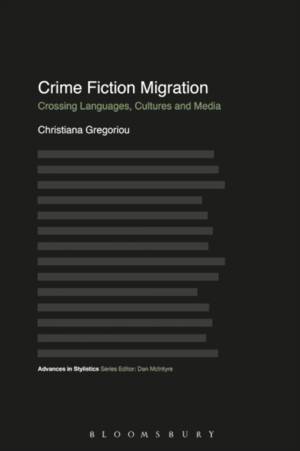
- Afhalen na 1 uur in een winkel met voorraad
- Gratis thuislevering in België vanaf € 30
- Ruim aanbod met 7 miljoen producten
- Afhalen na 1 uur in een winkel met voorraad
- Gratis thuislevering in België vanaf € 30
- Ruim aanbod met 7 miljoen producten
Zoeken
€ 79,95
+ 159 punten
Uitvoering
Omschrijving
Crime narratives form a large and central part of the modern cultural landscape. This book explores the cognitive stylistic processing of prose and audiovisual fictional crime 'texts'. It also examines instances where such narratives find themselves, through popular demand, 'migrating' - meaning that they cross languages, media formats and/or cultures.
In doing so, Crime Fiction Migration proposes a move from a monomodal to a multimodal approach to the study of crime fiction. Examining original crime fiction works alongside their translations, adaptations and remakings proves instrumental in understanding how various semiotic modes interact with one another. The book analyses works such as We Need to Talk About Kevin, The Killing trilogy and the reimaginings of plays such as Shear Madness and films such as Funny Games.
Crime fiction is consistently popular and 'on the move' - witness the spate of detective series exported out of Scandinavia, or the ever popular exporting of these shows from the USA. This multimodal and semiotically-aware analysis of global crime narratives expands the discipline and is key reading for students of linguistics, criminology, literature and film.
In doing so, Crime Fiction Migration proposes a move from a monomodal to a multimodal approach to the study of crime fiction. Examining original crime fiction works alongside their translations, adaptations and remakings proves instrumental in understanding how various semiotic modes interact with one another. The book analyses works such as We Need to Talk About Kevin, The Killing trilogy and the reimaginings of plays such as Shear Madness and films such as Funny Games.
Crime fiction is consistently popular and 'on the move' - witness the spate of detective series exported out of Scandinavia, or the ever popular exporting of these shows from the USA. This multimodal and semiotically-aware analysis of global crime narratives expands the discipline and is key reading for students of linguistics, criminology, literature and film.
Specificaties
Betrokkenen
- Auteur(s):
- Uitgeverij:
Inhoud
- Aantal bladzijden:
- 208
- Taal:
- Engels
- Reeks:
Eigenschappen
- Productcode (EAN):
- 9781350099067
- Verschijningsdatum:
- 24/01/2019
- Uitvoering:
- Paperback
- Formaat:
- Trade paperback (VS)
- Afmetingen:
- 156 mm x 234 mm
- Gewicht:
- 299 g

Alleen bij Standaard Boekhandel
+ 159 punten op je klantenkaart van Standaard Boekhandel
Beoordelingen
We publiceren alleen reviews die voldoen aan de voorwaarden voor reviews. Bekijk onze voorwaarden voor reviews.








